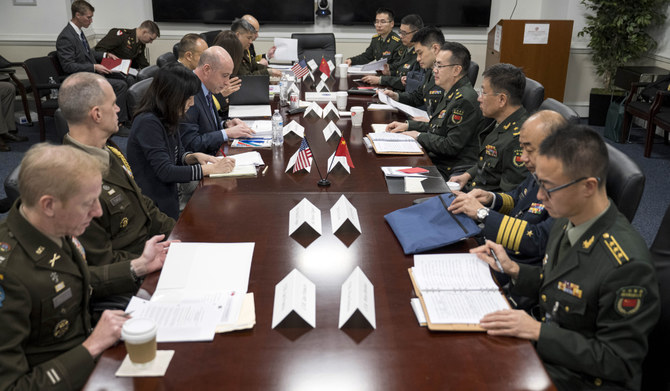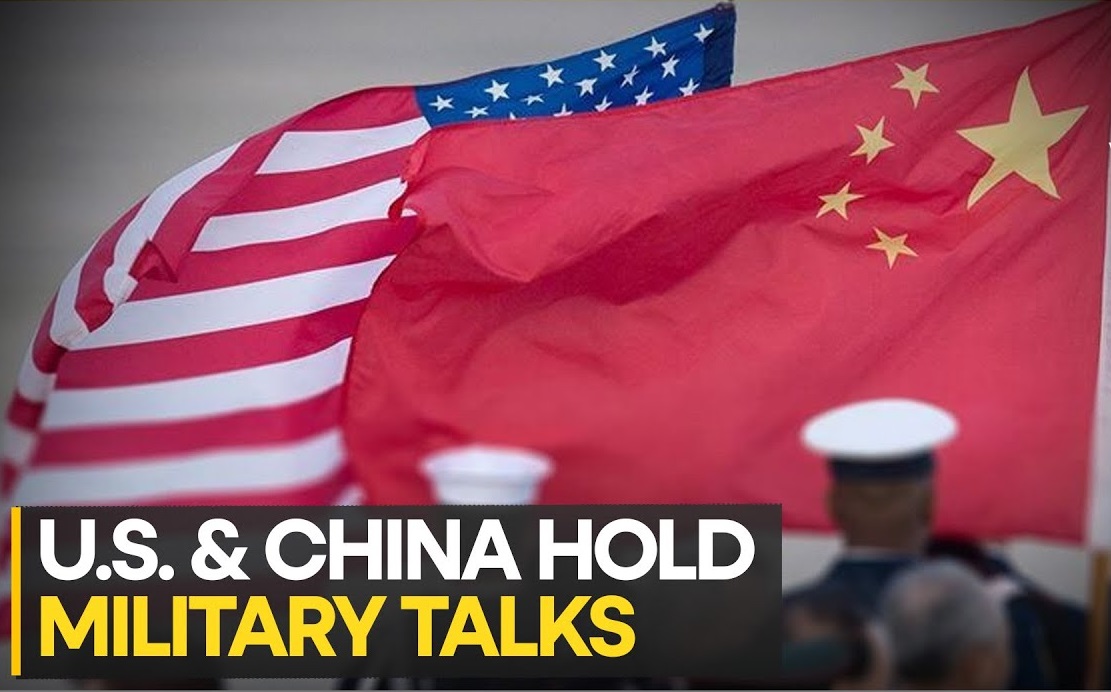
The United States and China have resumed military-to-military policy discussions at the Pentagon, which is a momentous development. (Photo: AP)
Defense Policy Coordination Talks (DPCT) Resumed in Washington After Chinese Freeze
The United States and China have resumed military-to-military policy discussions at the Pentagon, which is a momentous development. The purpose of the Defense Policy Coordination Talks (DPCT) between the two global powers was to resolve a vast array of policy concerns. The yearly summit, which Beijing opted to cancel in 2022, was reinstated in Washington this week.
The culmination of the alternatingly Washington and Beijing-led discussions was a significant milestone in the process of reestablishing channels of communication between their respective militaries. A discussion was held between the Chinese delegation, led by Maj. Gen. Song Yanchao, deputy director of the Central Military Commission Office for International Military Cooperation, and U.S. Deputy Assistant Secretary of Defense for China, Taiwan, and Mongolia Michael S. Chase, regarding defense relations between the PRC and the United States.
The reinstatement of the DPCT is of the utmost importance in ensuring operational safety in the Indo-Pacific region and preventing potential conflicts. U.S. Defense officials underscored the significance of maintaining well-communicated military channels, reiterating the dedication to conducting operations in a secure and accountable manner consistent with international law.
READ ALSO: China Imposes Sanctions On US Defense Manufacturers Over Arms Trade With Taiwan
Additionally, the discussions functioned as a platform for delineating upcoming scheduled interactions and tackling significant policy matters of concern to both countries.
At the DPCT reception, the commitments made by the United States and China are anticipated to allay growing apprehensions at the Pentagon regarding the likelihood that misunderstandings will escalate into hostilities. As both countries navigate the intricacies of their relationship, the resumption of these discussions represents a constructive stride in the direction of achieving military stability and tackling common regional and global challenges.
READ ALSO: U.S. Navy Sailor Sentenced To 27 Months In Prison For Betraying Country
























